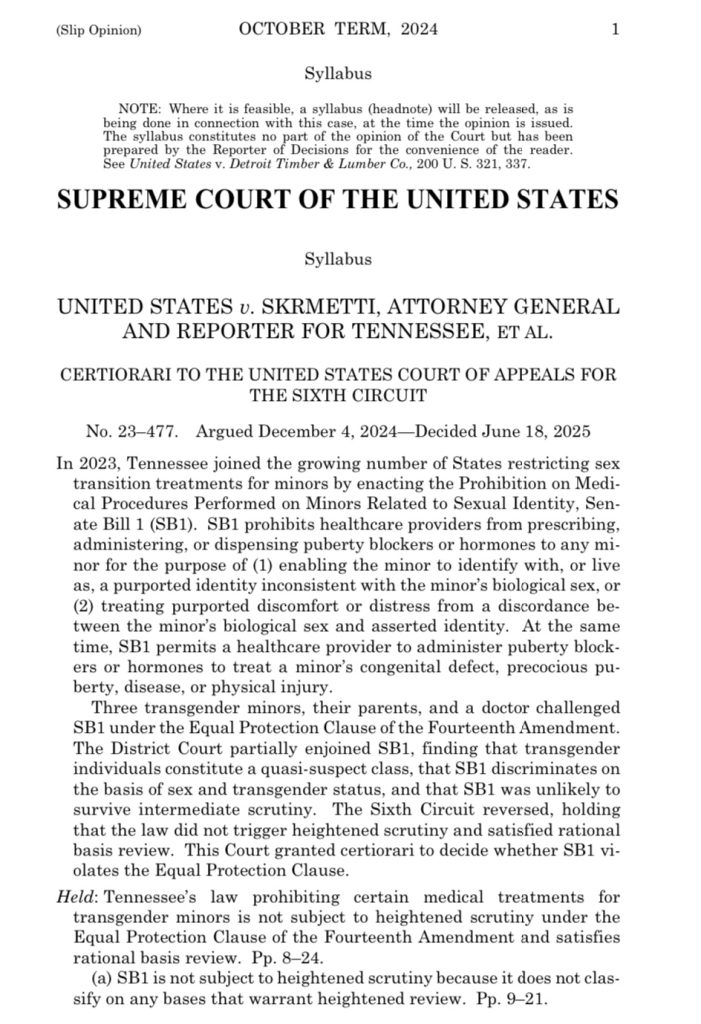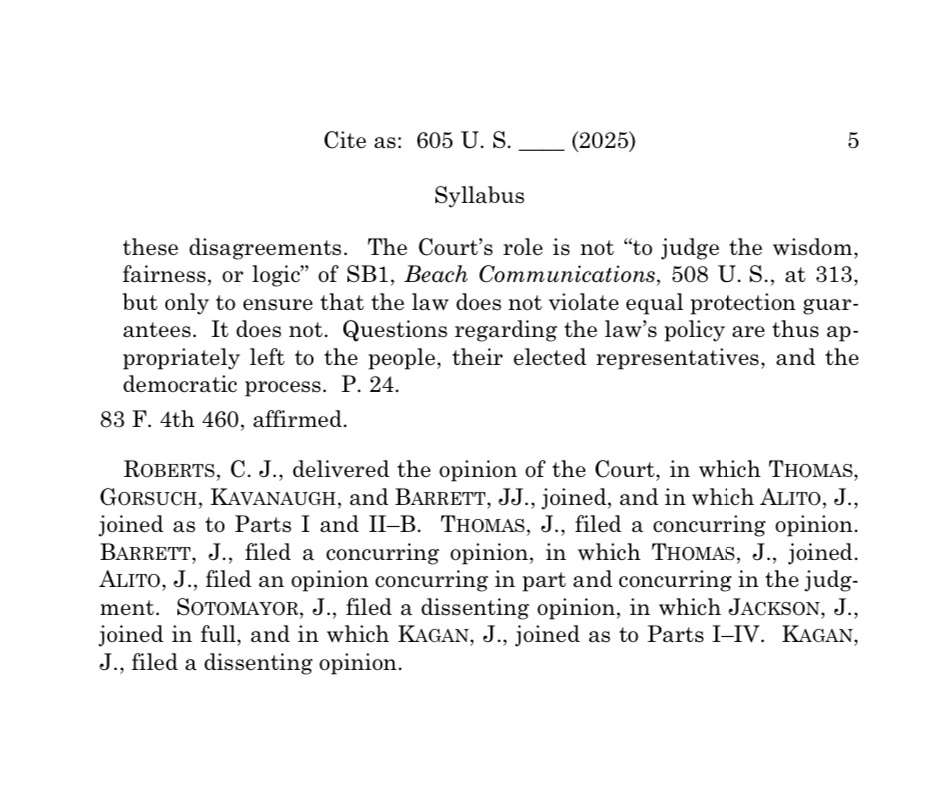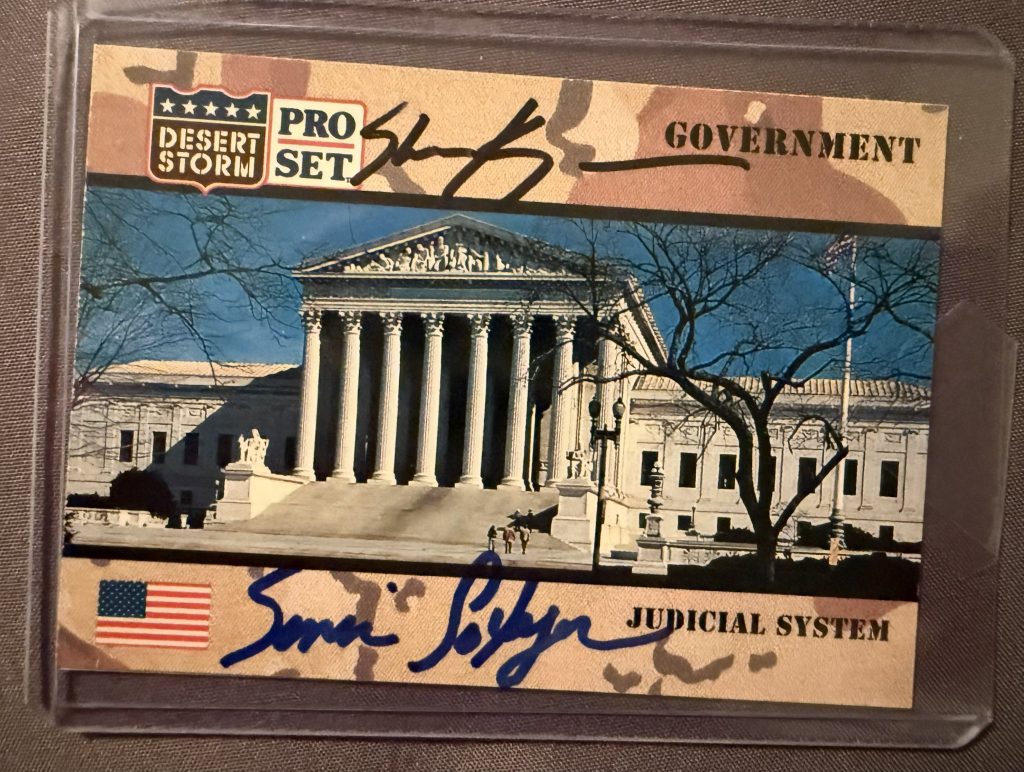As I’ve been telling people since she was confirmed—and I have witnesses—Justice Ketanji Brown Jackson’s record is revealing a judicial philosophy with surprising MAGA elements. Here are a few of her rulings that prove it:
- Ames v. Ohio Department of Youth Services (2025): Marlean Ames, a straight woman, alleged her supervisor, a lesbian, discriminated against her by favoring LGBTQ+ employees. The case centered on whether plaintiffs from majority groups had to meet a higher legal standard—showing “background circumstances” of discrimination—to bring a lawsuit. Writing for a unanimous Court, Justice Jackson ruled that Title VII forbids such a two-tiered system. The decision eliminated the “background circumstances” test, ensuring all individuals face the same evidentiary standard when alleging workplace discrimination.
- Catholic Charities Bureau v. Wisconsin Labor & Industry Review Commission (2025): The Court unanimously sided with Catholic Charities against the state of Wisconsin, which had denied the organization a religious-employer exemption from unemployment taxes. Wisconsin argued the charity wasn’t “operated primarily for religious purposes” because it served all people, not just Catholics, and didn’t proselytize. The Court held that the state’s position violated the First Amendment by imposing a “denominational preference” and attempting to define what constitutes a valid religious activity, which the government is forbidden from doing.
- Fischer v. United States (2024): This case questioned whether a felony obstruction charge, originally passed to prevent evidence tampering, could be broadly applied to defendants from the January 6 Capitol riot. Justice Jackson joined the conservative majority in a 6-3 decision that found prosecutors had interpreted the law too broadly. The Court ruled the law is limited to acts that impair the integrity of evidence, not any conduct that disrupts an official proceeding. This significantly narrowed the application of a key felony charge in Jan. 6 prosecutions.
- CFPB v. Community Financial Services Association (2024): Her opinion, while far from perfect in my opinion, was a strong defense of judicial restraint, arguing that courts have no power to overrule Congress on funding matters unless the Constitution is explicitly and unambiguously violated. This reasoning champions a limited role for the judiciary, a core principle of legal conservatism.
Analyses of her judicial philosophy note her willingness to use originalism—a method of legal interpretation favored by conservatives—to understand the text and history of a law. Legal experts have pointed out that this approach makes her “persuadable by legal arguments” that might not align with a strictly liberal viewpoint. While she often dissents in major cases, her record shows a commitment to legal reasoning that can sometimes lead to results that surprise observers.
UPDATE June 18, 2025: “It should be a DQ for the three . They had a couple rulings, but this is so bad it’s just off the charts . They’re rogue you got to impeach them somehow @repdarrellissa”
“BREAKING: In a 6-3 decision, the Supreme Court has upheld Tennessee’s law banning genital mutilation of minors under the guise of so-called “trans” surgery. “The Court’s role is not ‘to judge the wisdom, fairness, or logic’ of [the ban on surgically mutilating minors], but only to ensure that the law does not violate equal protection guarantees,” the Supreme Court ruled. “It does not. Questions regarding the law’s policy are thus appropriately left to the people, their elected representatives, and the democratic process.””



